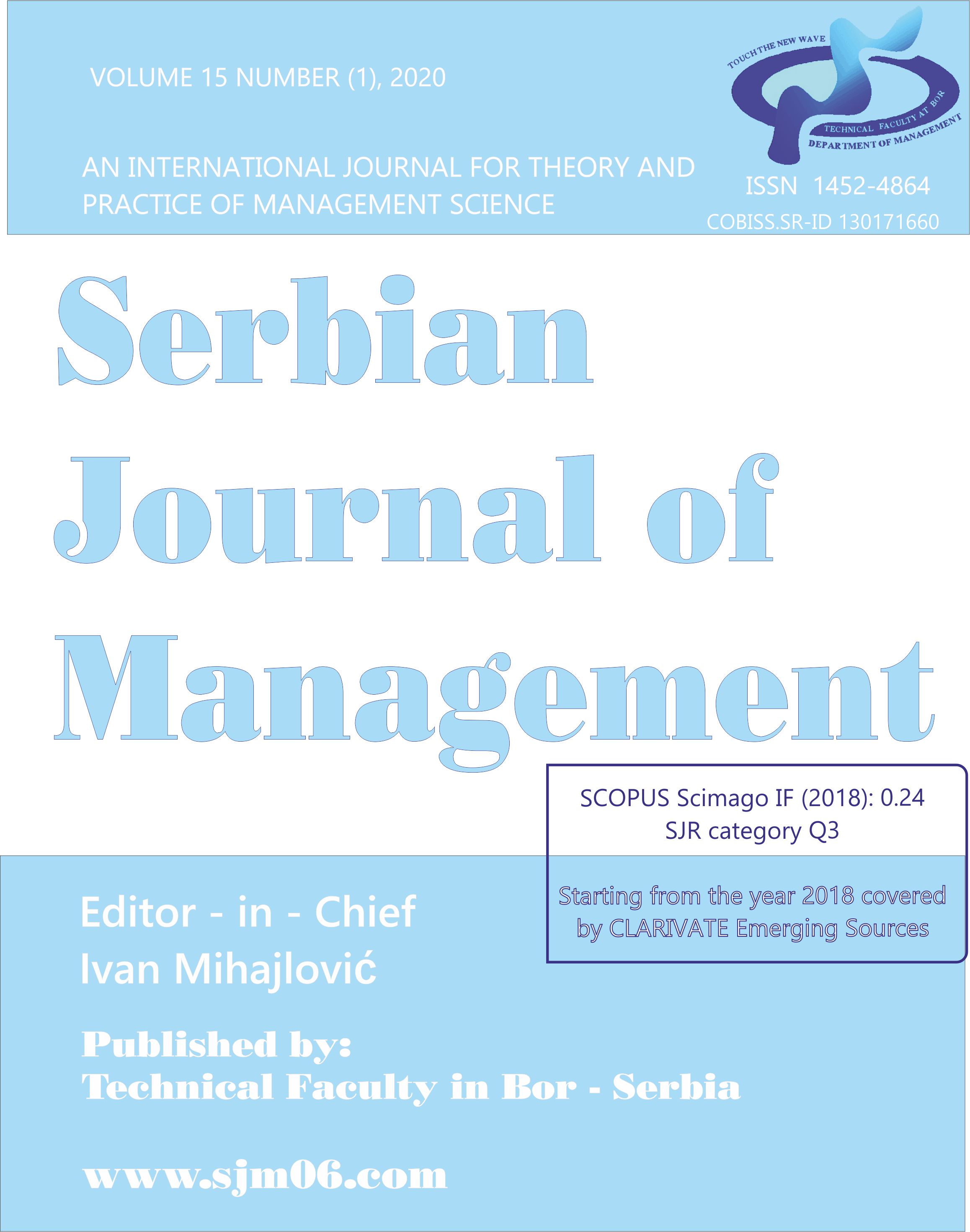The impact of the relationship between the state, state institutions and tax payers on willingness to pay tax
Abstract
There are several economic models in the literature that seek to correlate between human behaviour patterns, attitudes, tax evasion and its risk, also their institutional background. The values, the societal norms and attitudes differ from country to country, and these differences have a measurable effect on economic manners. Unethical business behaviour and the reasons of hidden economy are widely examined by more kinds of research methods. According to the results of many studies, we can assume that the trust in government, the stability of the tax system, and treating taxpayers as partners and with respect have positive effect on willingness to pay tax. Apart from this, direct political participation of the citizens and their involvement in political decisions and democracy have significant positive effect on tax morals as well. The aim of present study is to support these statements based on a questionnaire survey among the competent managers of small and medium-sized enterprises in Hungary and with the help of in-depth interviews - from an economic psychological perspective - with some interviewees present in several countries as taxpayers.
References
Alm, J., Martinez-Vazquez, J., & Torgler, B. (2006). Russian attitudes toward paying taxes – Before, during, and after transition. International Journal of Social Economics, 33(12), 832-857.
Alm, J., Sanchez, I., & de Juan, A. (1995). Economic and noneconomic factors in tax compliance, Kyklos, 48 (1), 3–18.
Balogh, L., Gál, V., & Kovács K. (2014). The willingness of the Hungarian population to pay taxes (in Hungarian). Regional and Business Studies, 6 (1), 65-74
Cummings, R.G., Martinez-Vazquez, J., Mckee, M., & Torgler, B. (2004). Effects of Culture on Tax Compliance: A Cross Check of Experimental and Survey Evidence. CREMA, Working Paper No. 2004. Retrieved from http://ww.w.crema-research.ch/papers/2004-13.pdf.
Frey, B.S., & Feld, L.P. (2002). Deterrence and Moral in Taxation: An Empirical Analysis. CESifo Working paper No. 760, Retrieved from https://www.ifo.de/DocDL/760.pdf
Frey, B.S., & Torgler, B. (2006). Tax Moral and Conditional Cooperation. Journal of Comparative Economics, 35 (1), 136-159.
Hámori, B. (1998). Emotional Economics (in Hungarian), Kossuth Publishing House, Budapest, Hungary.
Kirchler, E., Hoelzl, E., & Wahl, I. (2008). Enforced versus voluntary tax compliance: The „slippery slope” framework. Journal of Economic Psychology, 29 (2), 210-225.
NAV YEARBOOK (2016). Facts, information on the organization of the National Tax and Customs Office and its activities in 2016 (in Hungarian). Budapest, Hungary. Retrived from http://nav.gov.hu/data/cms436895/NAV_evkonyv_2016.pdf
Rosenberg, M. (1965). Society and Adolescent Self-image. Princeton University Press, Princeton, N.J.
Rosenberg, M. (1989). Society and the Adolescent Self-image (Rev. ed.). Wesleyan University Press, Middletown, CT.
Schneider, F. (2000). The Increase of the Size of the Shadow Economy of 18 OECD countries: Some Preliminary Explanations. Working Paper, No. 0008. Johannes Kepler University of Linz, Department of Economics, Linz. Retrieved from http://www.econstor.eu/bitstream/10419/73324/1/wp0008.pdf
Schneider, F., & Buehn, A. (2012). Shadow Economies in highly developed OECD countries: What are the driving forces? , IZA Discussion Papers, No. 6891, Institute for the Study of Labor (IZA), Bonn. Retrieved from: http://www.econstor.eu/bitstream/10419/67170/1/727543865.pdf
Semjén, A., & Tóth, I.J. (2004). Analyzes of the Hidden Economy in Hungary, Study 4, Hidden Economy and Tax Conduct (in Hungarian), MTA Research Center for Economic Sciences, Budapest, Hungary.
Strümpel, B. (1969). The Contribution of Survey Research to Public Finance. In A.T. Peacock (ed.), Quantitative Analysis in Public Finance,14-32. New York, NY: Praeger Publishers.
The Author wishes to submit the Work to SJM for publication. To enable SJM to publish the Work and to give effect to the parties’ intention set forth herein, they have agreed to cede the first right to publication and republication in the SJM Journal.
Cession
The Author hereby cedes to SJM, who accepts the cession, to the copyright in and to the paper.
The purpose of the cession is to enable SJM to publish the Work, as first publisher world-wide, and for republication in the SJM Journal, and to grant the right to others to publish the Work world-wide, for so long as such copyright subsists;
SJM shall be entitled to edit the work before publication, as it deems fit, subject to the Authors approval
The Author warrants to SJM that:
- the Author is the owner of the copyright in the Work, whether as author or as reassigned from the Author’s employee and that the Author is entitled to cede the copyright to SJM;
- the paper (or any of its part) is not submitted or accepted for publication in any other Journal;
- the Work is an original work created by the Author;
- the Author has not transferred, ceded, or assigned the copyright, or any part thereof, to any third party; or granted any third party a licence or other right to the copyright, which may affect or detract from the rights granted to SJM in terms of this agreement.
The Author hereby indemnifies the SJM as a body and its individual members, to the fullest extent permitted in law, against all or any claims which may arise consequent to the warranties set forth.
No monetary consideration shall be payable by SJM to the Author for the cession, but SJM shall clearly identify the Author as having produced the Work and ensure that due recognition is given to the Author in any publication of the Work.
Should SJM, in its sole discretion, elect not to publish the Work within 1 year after the date of this agreement, the cession shall lapse and be of no further effect. In such event the copyright shall revert to the Author and SJM shall not publish the Work, or any part thereof, without the Author’s prior written consent.

